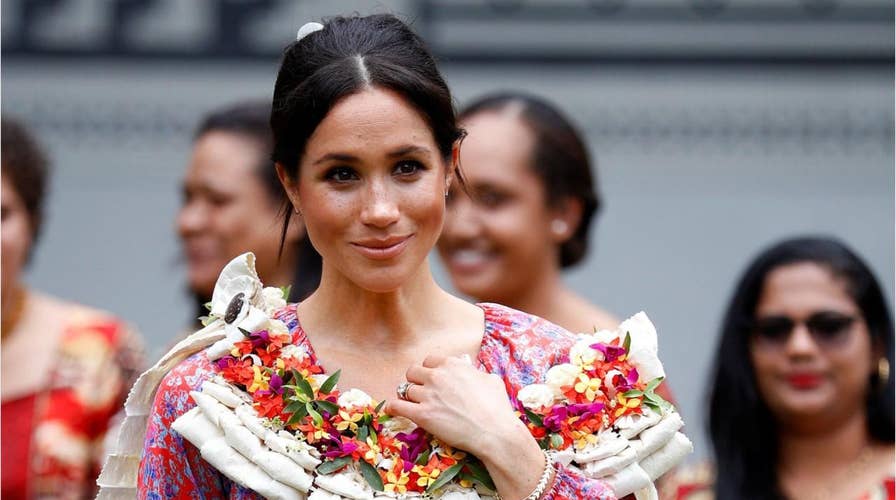On Tuesday night, Meghan Markle attended her first formal occasion as a member of the royal family.
While Meghan looked stunning at the Fiji state dinner in a blue cape dress by Safiyaa and chandelier diamond earrings, royal fans couldn’t help speculate that something was missing from her look — a tiara.
Meghan’s lack of sparkle was in stark contrast to Queen Elizabeth’s appearance at a Fiji state banquet in 1953, where the monarch dazzled in a tiara.
But according to royal custom, Meghan couldn’t have worn a tiara even if she had wanted, simply because the Fiji state dinner isn’t deemed an appropriate event for one.
The rules explain why Kate Middleton wore a tiara for the Netherlands state banquet at Buckingham Palace on Tuesday night.
Members of the royal family can only wear tiaras when the event is a white-tie event and Meghan and Harry’s Fiji reception was only black tie, Hello! reports.
For black-tie events, royal women wear either a floor or mid-length dress and men must be attired in a white shirt and black tuxedo.
In contrast, a white-tie event would mean Meghan is required to wear an evening gown and tiara, while Harry would have needed to wear a military uniform or white tie evening suit.
The rules around tiara-wearing in the royal family also extends to marital status, with Meghan, Kate and Princess Eugenie all able to don one while (sorry) Princess Beatrice can’t.
“Any woman may wear one, but ancient tradition has it that they must be a bride or already married,” jewelry expert Geoffrey Munn told Town and Country.
“The tiara has its roots in classical antiquity and was seen as an emblem of the loss of innocence to the crowning of love.
“One of the mainstays of European royalty and aristocracy is to do what you have always done and formal dress, jewelry, and tiaras are just part of this.”
This article originally appeared in news.com.au.














































